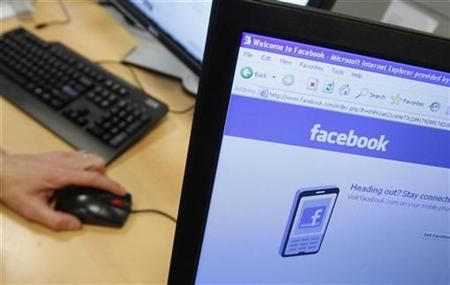Social media, mobile phones make global travel trendy

Not more than a decade back, travelers carried roll cameras to destinations; a few years later it was replaced by easy-to-carry digital cameras and came along with it conventional mobile phones for which travelers were paying high cost to be in touch with family and friends while on the go. Road maps, destination maps, guide books, travel magazines and the like were a must but the revolution in social media and mobile technology in the recent years has changed the face of traveling with more than 50 percent of the travelers opting for the newest technology as one of their essential travel checklists.
Facebook, Twitter, iPhone, smart phones, travel apps, mobile phones with GPS and in-built camera, and more are supposedly the new arms of today’s travelers around the world, according to researchers.
‘The travel social fans’
“In the USA, about 52 percent of the 152 million adult leisure travelers – or some 79 million people - already use social media,” Laura Mandala, managing director of US-based Mandala Research firm, said in ITB Travel Trends report 2010-2011.
According to Mandala, travelers using social media in the United States generate about $102.9 billion for the domestic US tourism sector compared to about $69.5 billion from non-social media users.
Referring social media users as “‘travel social fans” (TSFs), Mandala said, such travelers are signing up as friends, fans or followers of travel suppliers on social networking sites, mostly Facebook, for any leisure travel information.
However, Expedia research shows that the travel industry still needs to develop an effective, result-oriented social media marketing strategy. At present, only a few countries including The Netherlands, Austria, New Hampshire and Virginia have been successfully promoting tourism through social media. Virginia won a national award for promoting wine tourism on Twitter last year. Among airlines, AirAsia claims to have generated 13 percent of sales through its Facebook fan page that has over a million followers, said the ITB report.
Mobile and its mighty Applications
While social media is slowly reaping benefits to the industry, mobile technology is not too way behind either. According to Japan’s tourism figures, 20 percent of domestic flights are booked through mobile phones. Expedia.com also recorded a five percent rise in mobile bookings in 2010 over the previous year, one of the leading flight comparison sites of the US said.
And then there are various travel apps accessible through iPhones and smart phones that give an edge to travel mobile technology. For instance, explains ITB report, Trip Deck, an iPhone app helps travelers with real-time travel information about flight schedules, hotel reservations, car rentals and more services.
According to the report, Tripadvisor enjoyed the most-downloaded app for a year due to its useful content, with most of the US social media travelers checking hotels’ information on it.
WTM Figures
Meanwhile, it would be important to look down on these data according to World Travel Monitor, which reveals about the actual penetration of mobile technology in world tourism 2010:
• About 40 percent of international travelers own a smart phone with internet and e-mail access and other functions, of which more than 40 percent use their devices to get destination information; 34 percent of business travelers and 26 percent of leisure travelers use them to make booking changes during their trip.
• Over 57 percent have a conventional mobile phone.
• Nearly 2 percent still do not have a mobile phone.
• More than 37 percent of international leisure travelers are also using social networks by mobile access while traveling.
Negative factors
As about only 40 percent of travelers own smart phones, a few factors downbeat travel industry strategy on promoting use of mobile apps for promoting tourism:
• According to Mats Staugaard, head of Norwegian consulting firm Infinite Loop, the industry should ensure there are apps and products for all smart phone types, not just iPhone.
• Mobile websites could be also in consideration, Staugaard said in the ITB report.
• According to ITB report, the high costs of downloading data on mobile devices on roaming, is also one negative factor travel industry should consider.
© Copyright IBTimes 2024. All rights reserved.





















